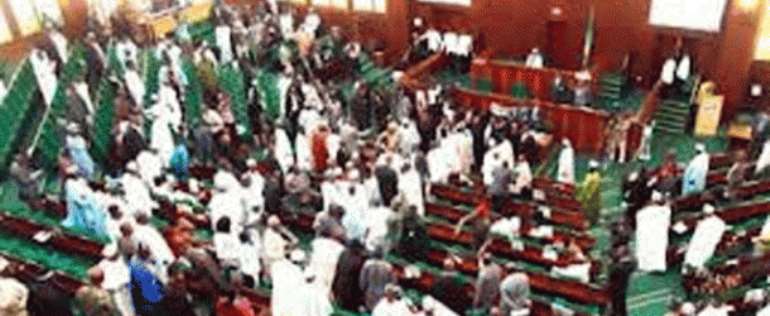2013 Budget not padded - Rep

The chairman, the House Committee on Appropriations, John Owan Enoh, has declared that the National Assembly never padded the 2013 budget.
He also stated that NASS had enormous constitutional powers that required no further court interpretation to override President Goodluck Jonathan's veto on the 2013 Appropriation Bill.
Enoh, who appeared at the inaugural media hot seat series organized by the House of Representatives Press Corps last weekend, said: 'We have no doubt on the constitutional powers we have, and so would not approach the court.'
He added that the federal legislature had been offered 30 days constitutionally to override the President's veto on any Bill, and quickly pointed out that by his calculation, the required 30 days had not expired on the 2013 Appropriation Bill.
Both legislative Houses had separately passed the 2013 Appropriation Bill of N4.987 trillion on December 20, 2012, but was yet to be assented to by President Jonathan over differential issues which Enoh said both the executive and leadership of the legislature were meeting to resolve.
According to him, the allegation that the budget Bill was returned by the Presidency to the National Assembly is untrue.
He noted that 'the channel of returning any Bill, not just the Appropriation Bill, is usually formal, and that has not been done.'
Enoh explained that if the assent was done soon, there was hope that the country would do better in terms of budget implementation than the previous years.
He, however, conceded that he was personally worried as Chairman of the Committee on Appropriations of the House that its work remained uncompleted until the Bill became law, especially with its early passage.
He denied that the National Assembly padded the budget for selfish reasons.
'The word padding (of budget) is not a civil language in a democracy,' he said, pointing out that if some proposals in the opinion of standing committees were cut and re-distributed somewhere else where such may prevent a project from being abandoned, it would be agreed that there were adjustments for the benefit of Nigerians.
He added that his committee did not get any directive to pad the Bill, and neither did it have the powers to do so.
He also denied the assertion that the executive was always reluctant at assenting to the budget Bill over alleged inclusion of 'unimplementable' constituency projects by members of the National Assembly, blaming such developments on deliberate lack of will by government ministries, departments and agencies, MDAs, to develop a template for implementing such projects over the years.
He said: 'What is lacking is the will to do what is needed by the MDAs, and this is something that has come out of lingering issues of who have greater powers on the budget.
' This has being a repeated issue and what is expected is for the MDAs to develop a template for implementation of the projects.'
Enoh also denied the allegation that the crude oil benchmark price was increased by the National Assembly from what the executive proposed with a view to making more money available to service their planned jerk-up of members' allowances, stating that the National Assembly budget had been maintained at 150 billion Naira since 2011.
